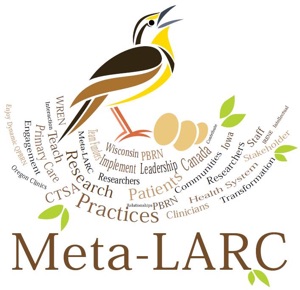About The Trial
Here we provide information on key aspects of our project.
For more detailed information check the Protocol page. If you still have questions, contact us.
What We are Studying
Advance Care Planning (ACP) is communication about and documentation of values and preferences related to healthcare. It is designed to align healthcare with what matters most to patients. ACP can occur at any time in lifespan; from a healthy people naming proxies in case of an unexpected injury to patients with a terminal diagnosis making end-of-life decisions. This study is about ACP for patients with SERIOUS ILLNESSES. We want to improve the quality of life and well-being of people during the last months and years of their lives.
OUr Objective
We are comparing two models of the Serious Illness Care Program (SICP) for ACP in primary care: clinician-focused SICP and team-based SICP. We want to help understand how ACP can be done well, particularly in busy primary care practices where many people with serious illnesses receive care.
Two Models
In the clinician-focused model, a patient’s primary care clinician is responsible for initiating and continuing conversations with patients and families about serious illness care planning.
In the team-based model, tasks are purposefully shared by a care team that includes a primary care clinician and one or more member from an other profession.
The Serious Illness CAre Program (SICP)
We are using an established ACP program developed by Ariadne Labs. Effective ACP, particularly in the face of serious illness entails more than a single conversation or completing a form. SICP is a comprehensive program. It includes training and comprehensive workflows. The foundation of SICP is the Serious Illness Conversation Guide, a structured approach including patient- and clinician-tested language.
Participating Primary Care Practices
Primary care practices had to be affiliated with one of the Meta-LARC PBRNs and have an interest in ACP. The only exclusion was that they could NOT already have a standardized ACP program. Practices had to be willing to be randomly assigned to either of the two SICP models. Once assigned, the practices had to agree to implement SICP. This includes participating in training, identifying appropriate patients, assuring discussions happen, arranging follow-up as needed, and completing documentation so that patient values and preferences are known family and other health care providers.
Eligible Patients
Eligible patients are adults (over 18 years old) with a serious condition who are receiving care at a participating primary care practice.
To participate in the research study, patients must be community-dwelling (not living in a nursing home) and not already enrolled in hospice.
Practices ask patients if they are willing to talk to a researcher and then refer interested patients to the study and a PBRN researcher contacts the patient to explain the study, obtain consent and collect data.
Below: Preliminary data were shared with participating practices in February 2022.
Outcomes
Our primary outcomes are patient measures: how many days patients are at home (as that is where most people with serious illness want to be) and whether patients report that their health care supports what matters to them most (referred to as goal concordant care).
We are also collecting data from the primary care clinicians and teams about their experience with ACP.
Finally, we are documenting how ACP is implemented at the participating practices.
OUr Timeline
The project started in November 2017 and will continue through July 2023. We recruited and trained practices in 2018-2019 and we started enrolling patients in 2019.



